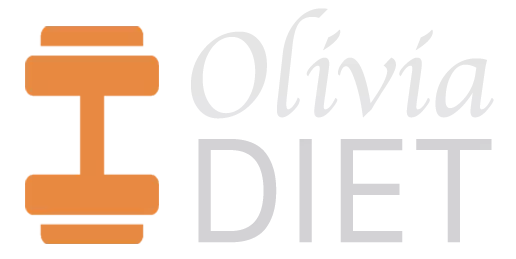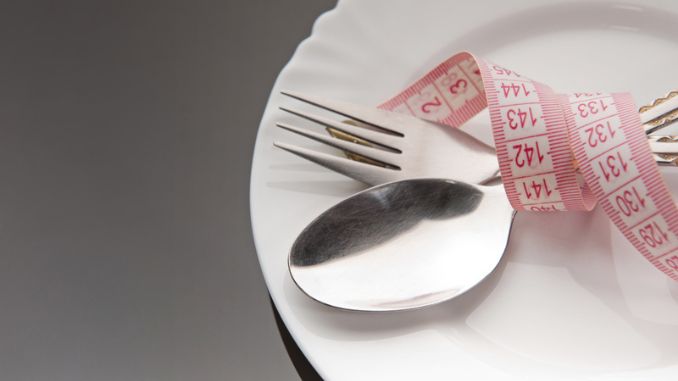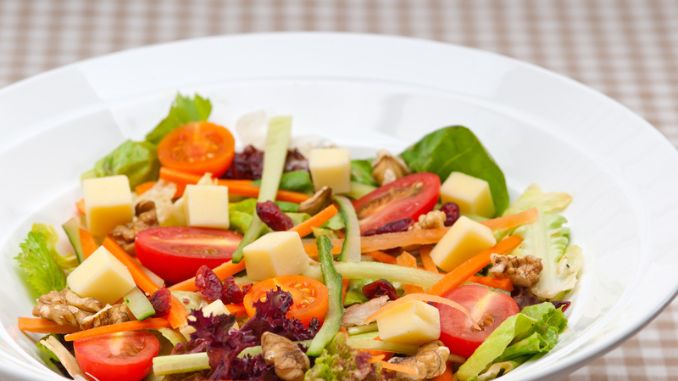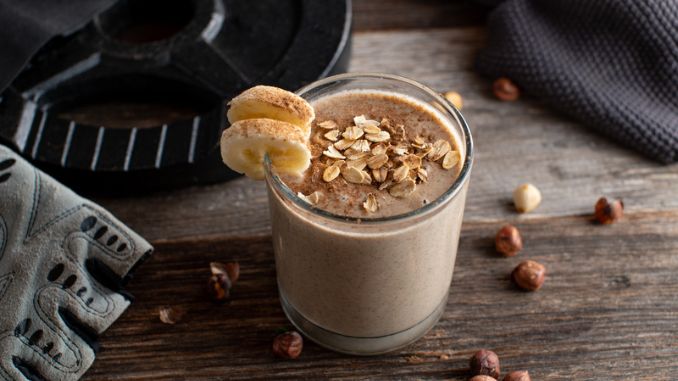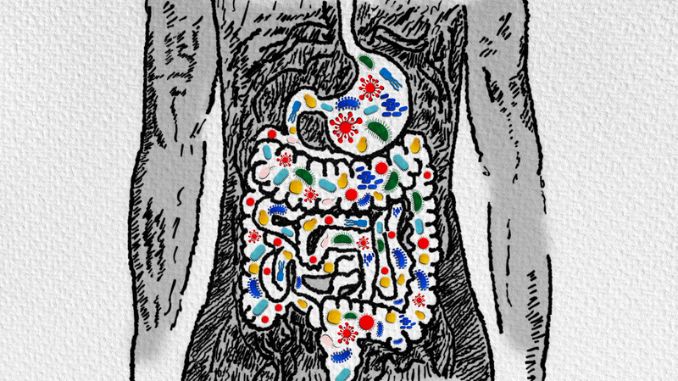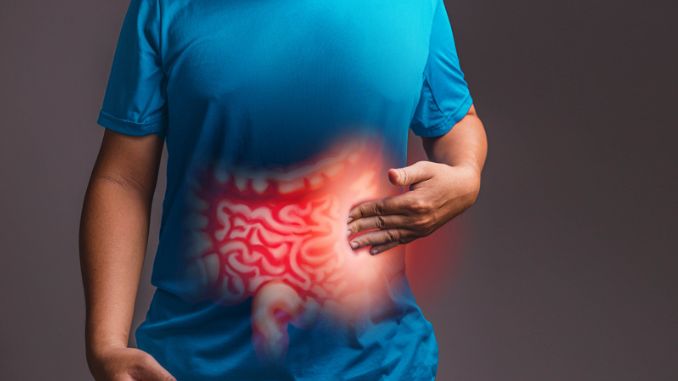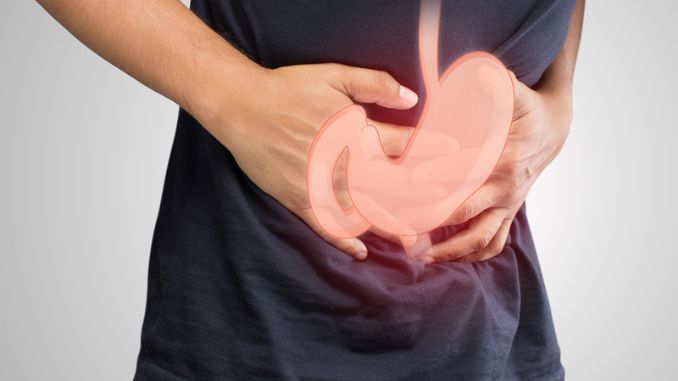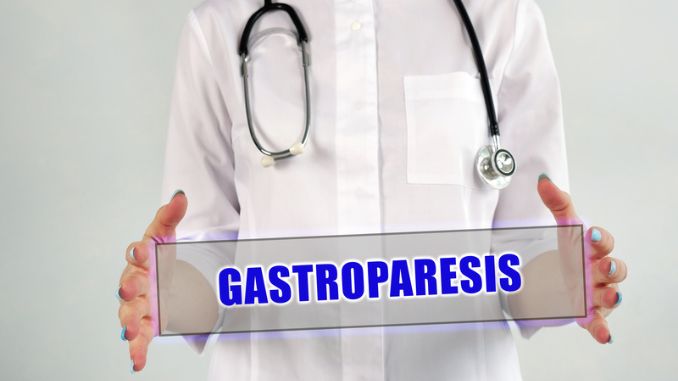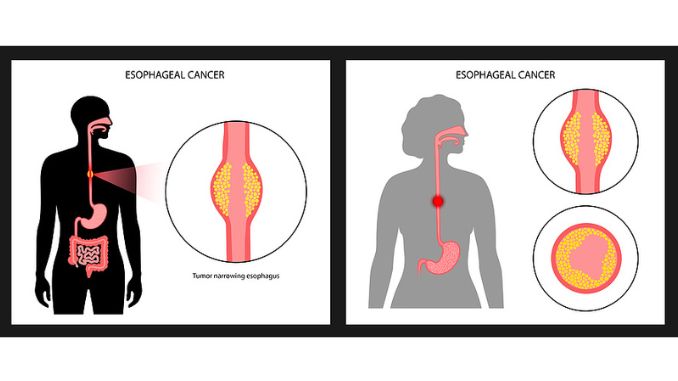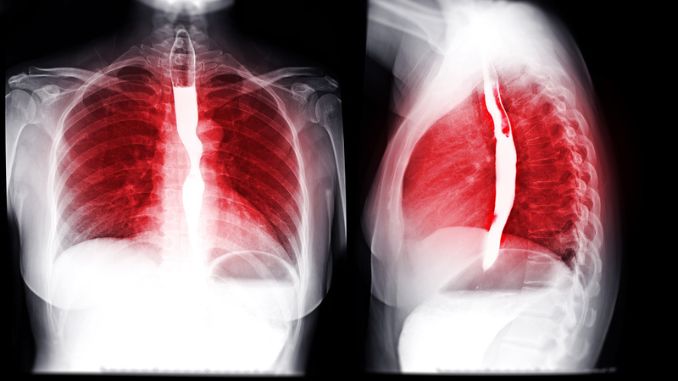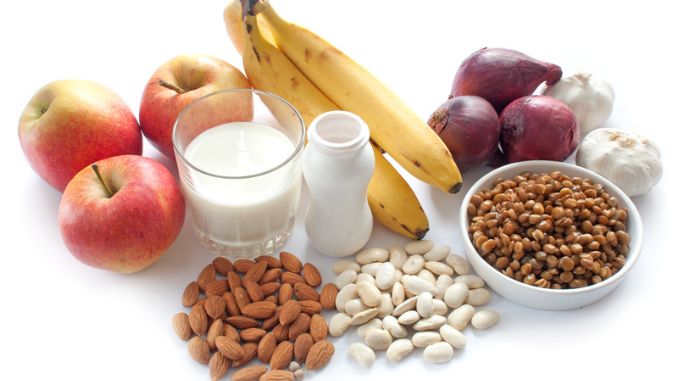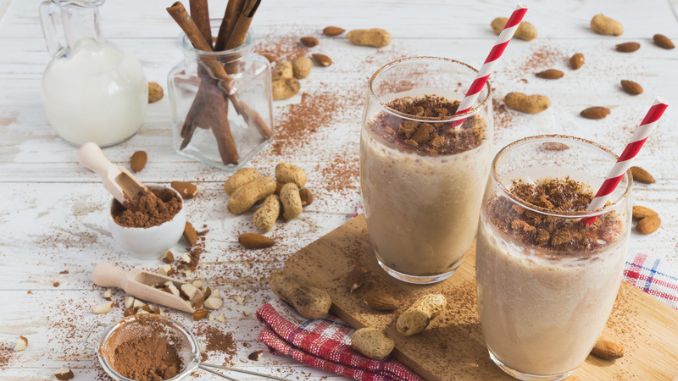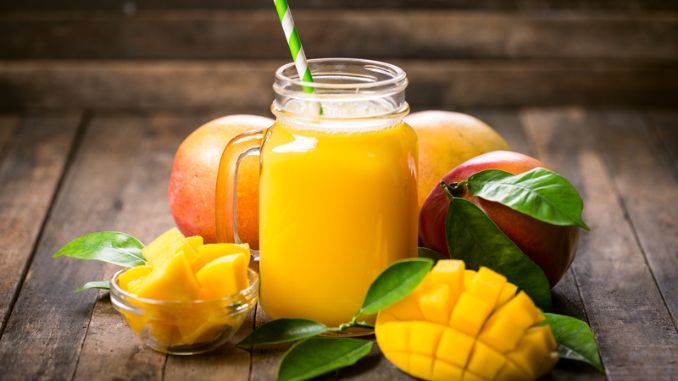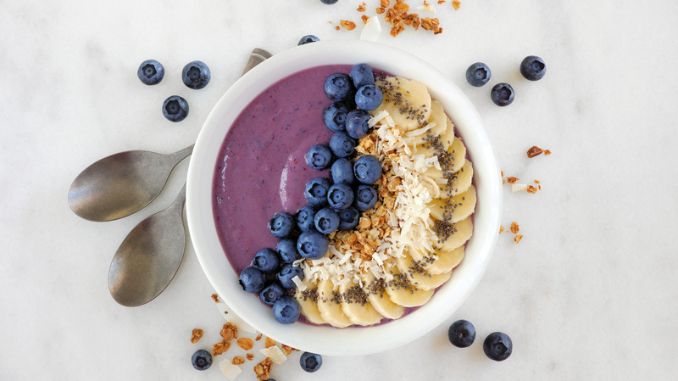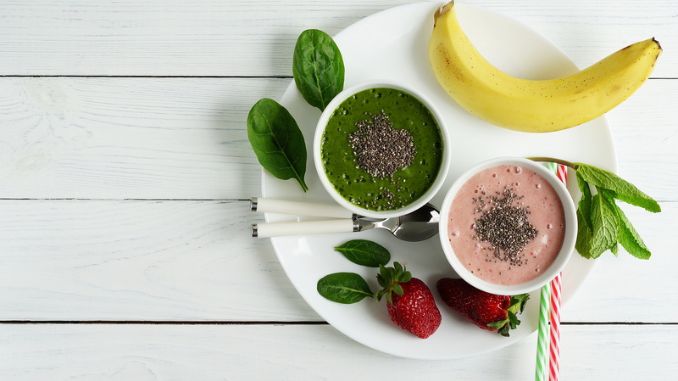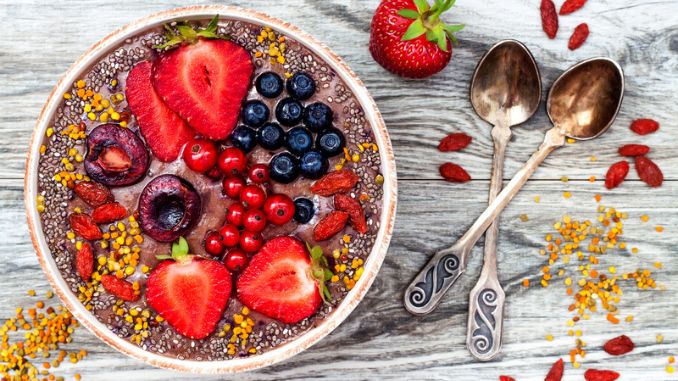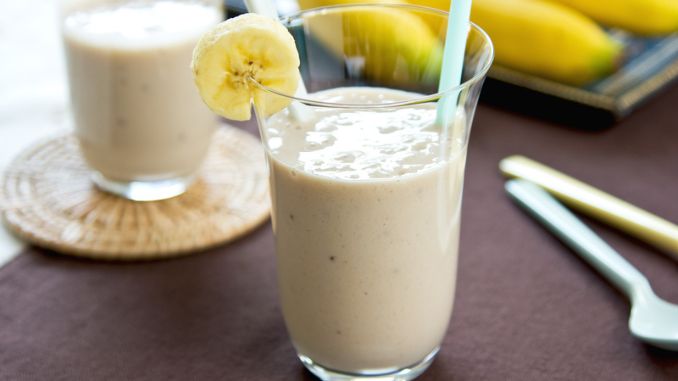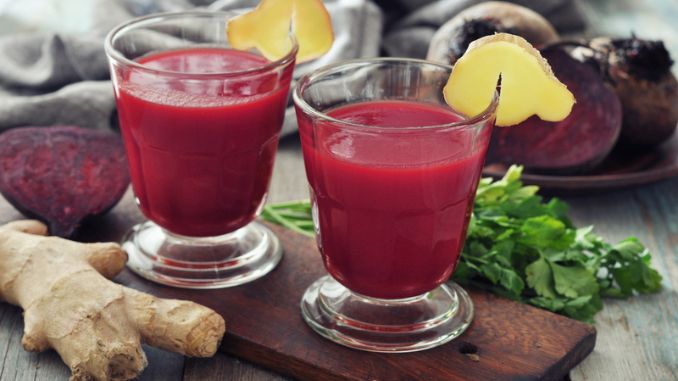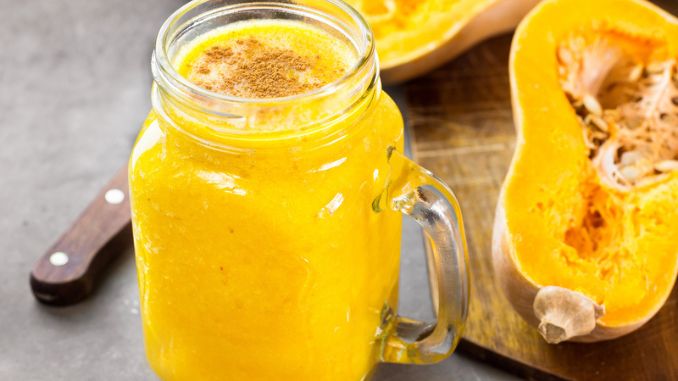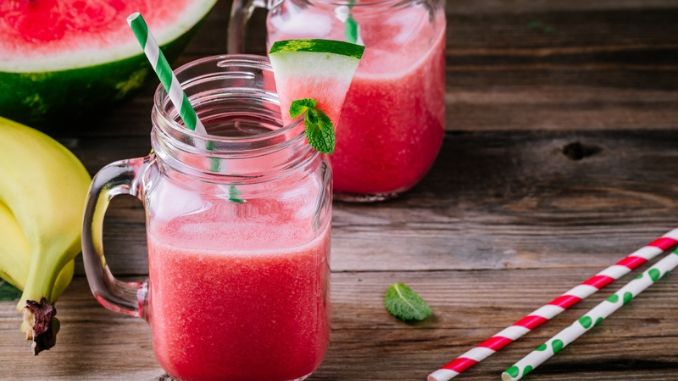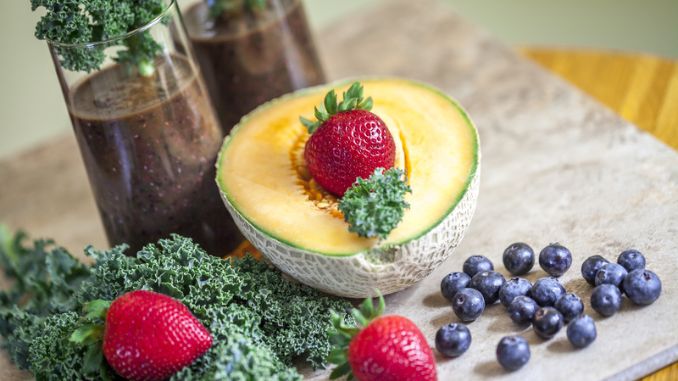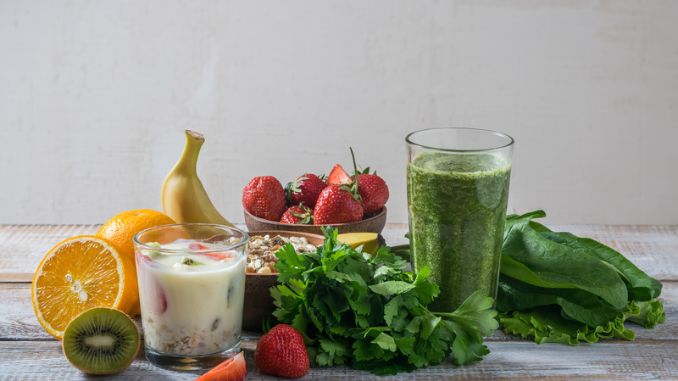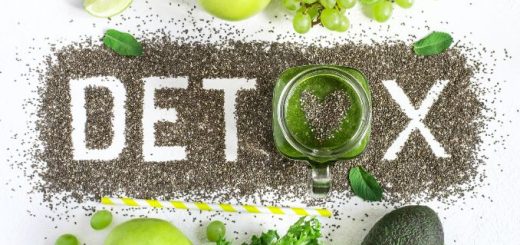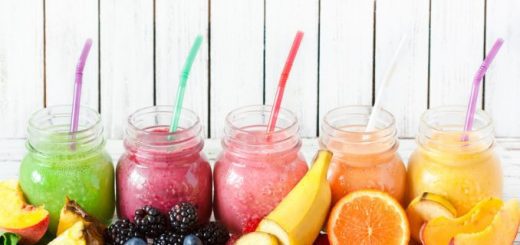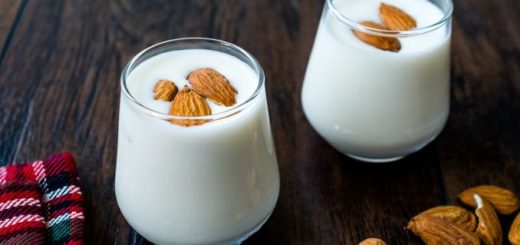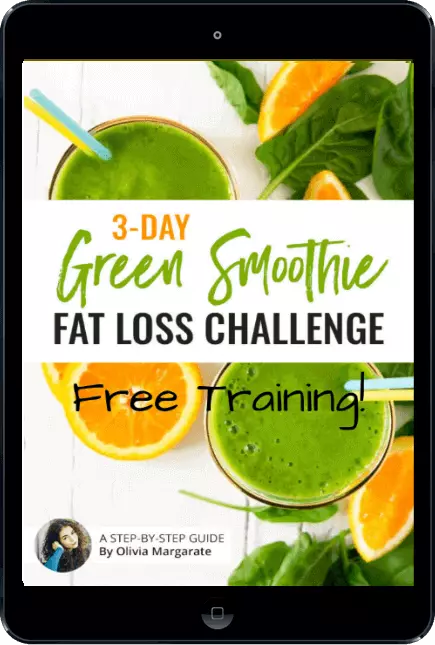Stay Healthy and Lose Weight with Gastric-Friendly Shakes
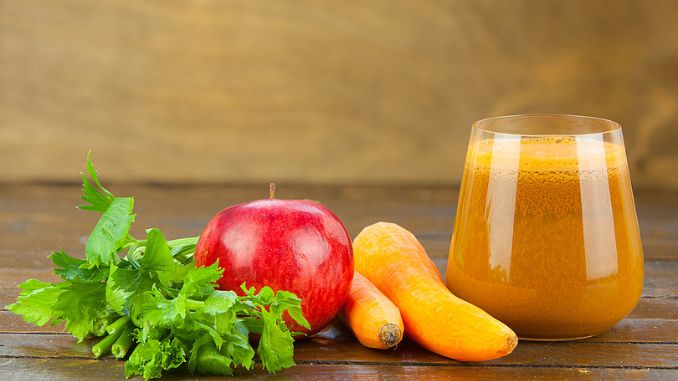
Last updated on May 21st, 2025 at 05:35 pm
At this time, you see so many people on social media constantly drinking smoothies, touting the benefits of green juice, and drinking smoothies as a meal replacement for weight loss. Below is an introduction to Smoothies for Gut Health and Weight Loss.
Lose Weight with Ways that Support Gastric Health
It can be difficult to lose weight when you have gastric problems. However, there are ways for weight loss specifically tailored for people with gastric issues. One way to lose weight is to drink smoothies for gut health, specifically for people with gastric issues. These smoothies for gut health are also low in calories and contain all the nutrients you need for weight loss.
Another way to achieve weight loss is to eat small, frequent meals throughout the day. This diet control will keep your metabolism going and reduce your chances of overeating. Additionally, make sure that you are getting enough exercise. Exercise will also help to boost your metabolism and tone your body.
Finally, fix your digestion. Improving your digestion includes:
- Cut back on fatty foods and add a little healthy fats
- Choosing protein over carbs
- Eat and drink slowly
- Trying low-FODMAP foods
- Add plenty of fiber to your diet
- Drinking plenty of water
- Avoid fizzy drinks
- Avoiding junk food
- Quit smoking
- Increasing physical activity in your everyday routine: There are different types of exercise that one can do to lose weight, such as walking, jogging, stair climbing, and so on.
- Don’t chew gum
- Limit foods that cause gas, such as
-
- Asparagus
- Beans
- Cabbage
- Milk and dairy products
- Mushrooms
- Onions
- Peaches
- Pears
- Prunes
- Wheat
13. Avoid sweeteners that cause gas, such as
-
- Candies
- Soft drinks
- Jams and jellies
- Fructose
- Baked goods that have artificial sweeteners such as sorbitol, acesulfame potassium, and aspartame
14. Reduce Stress
Some foods can also be consumed to help them lose weight, such as low-calorie drinks. One can also choose foods high in fiber to help them lose weight.
High Fiber Food
Generally, many foods are high in fiber, including whole grains, fruits, and vegetables. When eating high in fiber foods, you feel full faster, and they are digested slowly. This means that they keep you feeling full for longer, which helps you maintain a healthy diet.
With a gastric nor duodenal ulcer, one complication in severe cases would be an obstruction, which blocks the passage of food through the digestive tract, which will make you become full easily, vomit, and even lose some weight. Because of this, these nutrients from food cannot be used by your body, which can lead to weight loss lag.
Then people with these conditions need to eat foods high in fiber and protein, as these foods help prevent waste from building up in the digestive tract.
With this in mind, shakes are an excellent way to get the nutrients your body requires. For example, protein smoothies for gut health and weight loss can help you get more protein into your diet while providing some calories and other nutrients. If you’re into protein powders, check the label first, as some may have more sugar than others.
Are shakes or smoothies helpful for gut health and weight loss?
Antioxidants found in foods may be more effective than supplements because they can interact with other nutrients in the body; for example, vitamin C may aid in the absorption of vitamin E into cells. However, some people with gastric issues need to limit their intake of foods high in fat or sodium because these nutrients can exacerbate inflammation and cause stomach acid to rise. For this reason, smoothies for gut health can also be a helpful tool for weight loss for these individuals.
Shakes are a healthy option at any time of day, but we particularly suggest smoothies as a quick breakfast, on-the-go snack, or meal-in-between. They are quick and easy to make and can be prepared in advance. Most shakes only require a few minutes of active preparation, making them an even quicker option than oatmeal.
Additionally, shakes are an amicable solution if you have digestive issues. Plant fiber may be easier for your digestive system to manage because it is smashed when blended. The “good guy” bacteria in your intestines will be adored by the high plant food that shakes supply.
What stomach problems cause weight gain?
Many stomach problems can cause weight gain. These problems can lead to inflammation in the stomach while making it difficult to digest food properly. Then this can lead to weight gain as the body cannot properly absorb all of the food’s nutrients.
If you suffer from stomach problems, you must see a doctor to get the proper treatment. Some smoothies for gut health and weight loss recipes can help people with gastric issues. Then these shakes can soothe the stomach and aid digestion.
1. Constipation
Generally, constipation is a common stomach problem that can lead to weight gain. It occurs when the intestines absorb too much water from the stool, resulting in hard, dry stools that are difficult to pass.
A diet low in fiber usually also causes constipation and is high in processed foods. It can even lead to weight gain because it can cause the body to absorb more calories from the food eaten. People with constipation may experience abdominal pain, bloating, and even nausea.
Eating high in fiber foods, such as fruits, vegetables, and whole grains, smoothies for gut health and weight loss, and drinking plenty of water is important to ease constipation. Exercise can also help stimulate the intestines and promote regular bowel movements. If constipation persists despite lifestyle changes, it’s important to consult a doctor to rule out any underlying medical conditions.
2. Dysbiosis
Bacterial overgrowth in the stomach can be one of the causes of weight gain. When the bad bacteria in the stomach overpower the good bacteria, it causes a condition called dysbiosis. This means the balance of bacteria in the stomach is out of whack, leading to an overgrowth of bad bacteria.
Good bacteria benefit our health, but when the bad bacteria grow rapidly and out of balance, it can cause serious issues. Symptoms of bacterial overgrowth include bloating, gas, and abdominal pain. It can also cause an imbalance in the hormones that control appetite, leading to overeating and weight gain.
Eating probiotic-rich foods such as yogurt smoothies for gut health and weight loss and fermented vegetables can help maintain a healthy balance of bacteria in the gut. Eating a balanced diet with high-fiber foods can also reduce symptoms of bacterial overgrowth and help with weight management.
3. IBS (Irritable Bowel Syndrome)
IBS is a common digestive disorder characterized by abdominal pain, cramping, bloating, gas, and bowel habits. It is estimated that IBS affects 10–15% of the population and is more common in women than men. While the exact cause is unknown, it is thought to be related to physical, psychological, and environmental factors.
It’s important to note that IBS is a chronic condition that cannot be cured but can be managed with lifestyle changes and medications. In some cases, IBS can cause weight gain due to the associated abdominal discomfort and bloating. Additionally, the condition can lead to changes in appetite and food cravings, contributing to weight gain.
4. Gastritis
Undeniably, gastritis is a stomach lining inflammation caused by various factors, including Stress, medications, and certain diseases. The symptoms include abdominal pain, bloating, loss of appetite, nausea, and vomiting. It can also cause indigestion and excessive burping.
Sometimes, it can also lead to weight gain. This is because gastritis can cause damage to the lining of the stomach, leading to poor digestion, which can lead to nutrient deficiency and excessive weight gain. The damage to the stomach lining can cause bacteria to leak out of the stomach and into the bloodstream, leading to further weight gain.
If the person does not keep track of their calorie intake, the drop in appetite can lead to weight gain. Gastritis is a serious condition that a doctor should treat. Left untreated, it can lead to more serious stomach problems and malnutrition.
5. Stomach Ulcers
Also known as gastric ulcers, they are a type of stomach problem that can cause weight gain. They are sores in the stomach lining and can be caused by various factors, including a bacterial infection, long-term use of certain medications, or Stress. Common symptoms of a gastric ulcer include burning stomach pain, nausea, bloating, loss of appetite, and heartburn. In various instances, the pain of a gastric ulcer can cause an increase in appetite, leading to weight gain.
Treatment for gastric ulcers often includes medications to reduce the acid in the stomach and promote healing. Lifestyle changes include eating smaller, more frequent meals, drinking smoothies for gut health and weight loss, and avoiding acidic, spicy, or greasy foods. If you think you may have a gastric ulcer, it’s important to see a doctor immediately so they can diagnose the condition and provide the appropriate treatment.
6. Ulcerative Colitis
A serious medical condition that affects the stomach and digestive systems. It’s characterized by inflammation of the inner lining of the large intestine, which can neither lead to symptoms such as abdominal nor rectal pain, bloody diarrhea, fatigue, weight loss, and nausea. Some people may gain weight as a result of it. This is usually due to the discomfort and pain associated with the disease, making it difficult to eat regularly.
In addition, ulcerative colitis can cause malnutrition due to the reduced absorption of nutrients, causing an imbalance in hormones that can lead to weight gain and an increase in inflammation, which can cause the body to retain more water. Then you can manage your symptoms and maintain a healthy weight with the right treatment.
7. Crohn's Disease
A chronic inflammatory condition that affects the digestive system. It is characterized by abdominal pain, cramping, diarrhea, fatigue, weight loss due to malabsorption, and malnutrition. In any case, Crohn’s Disease can cause weight gain, as stomach problems can increase appetite. This can be especially difficult for those already struggling with weight.
Living with Crohn’s Disease can be difficult, but there are ways to manage it. Treatment for Crohn’s Disease typically involves medications to reduce inflammation and improve the symptoms. In severe cases, surgery may be necessary to remove the diseased part of the intestine.
Furthermore, eating a balanced diet which includes smoothies for gut health and weight loss, exercising regularly, and getting enough rest can help reduce the symptoms and keep the disease under control. Special diets can also help those struggling with Crohn's disease-related weight gain. Hence, working with a medical professional to develop a plan tailored to your needs can help you stay healthy and maintain a proper weight.
8. Gastroparesis
Gastroparesis is a long-term condition that affects the normal movement of the stomach; thus, it does not empty properly. It is caused by a vagus nerve dysfunction, which controls the stomach muscles. Gastroparesis’ most common symptom is a feeling of fullness after only a few bites. Other uncomfortable symptoms of gastroparesis include nausea, chronic abdominal pain, bloating, vomiting, and heartburn. In individual cases, gastroparesis can also cause unintentional weight gain.
The typical cause of gastroparesis is an underlying medical condition neither diabetes, hypothyroidism, nor an autoimmune disease. Treatment of these conditions can often improve gastroparesis symptoms. Other treatments, such as medication and dietary changes, may also be necessary. Diet modifications can be especially helpful, as certain foods can worsen gastroparesis. Early diagnosis and treatment can help you manage your symptoms and prevent further health complications.
9. Esophageal Cancer (EAC) and Barrett's Esophagus (BE)
Esophageal cancer (EAC) and Barrett’s esophagus (BE) are serious health conditions that affect the esophagus, the tube that connects the mouth to the stomach. EAC is a type of cancer that starts in the esophagus cells and BE is when the esophagus cells become abnormal. Both conditions can cause various symptoms, including difficulty swallowing, chest pain or throat pain, and weight gain.
People with EAC may also experience nausea and vomiting, while those with BE may have frequent heartburn and acid reflux. In both cases, stomach problems can lead to weight gain as the body cannot properly digest food. Seek medical advice if you experience these symptoms as soon as possible. Early detection and treatment can significantly improve the outcome.
10. Acid Reflux or GERD
Acid reflux, or GERD (Gastrointestinal Esophageal Reflux Disease), is a digestive disorder that causes stomach acid to go back into the esophagus. This is because stomach acid can cause inflammation in the digestive tract, making it difficult to absorb nutrients. This can lead to various symptoms, including heartburn, chest pain, and difficulty swallowing.
It’s important to note that having GERD doesn’t always lead to weight gain, but it is a potential side effect. People with GERD may also experience digestive problems like bloating or gas, which can also contribute to weight gain. If you experience acid reflux or GERD symptoms, you must talk to your doctor about the best treatment options. A healthy diet and lifestyle can also help reduce symptoms and prevent weight gain.
Foods for a Healthy Gut
Eating a gut-healthy diet, including smoothies for gut health and weight loss, is key to maintaining a healthy digestive system. Foods considered gut-healthy include high-fiber fruits and vegetables, lean proteins, whole grains, probiotic-rich cultured foods, and healthy fats. Fruits and vegetables are especially important as they are a good source of fiber, which helps keep your digestive system running smoothly. A few are bananas, blueberries, Brussels sprouts, cabbage, garlic, ginger, kale, beans, and peas.
Lean proteins like fish, chicken, and eggs are also a great choice as they are rich in essential nutrients and help keep your gut bacteria balanced. Whole grains are also an excellent source of fiber and provide important vitamins and minerals. Probiotic-rich foods, such as yogurt (kefir), kimchi, and sauerkraut, are also important as they help maintain a healthy balance of bacteria in your gut.
Finally, healthy fats like olive oil, nuts (like almonds), and seeds provide essential fatty acids and can help keep your digestive system running smoothly. Ensure you’re incorporating these gut-friendly foods into your diet to improve your digestive health.
a. Shakes that Help Relieve Constipation
Generally, shakes are a great way to boost your nutrient intake and get your digestive system back on track. Not only do smoothies help your weight loss journey, but gut health smoothies can also help with gastric issues like constipation. They are a great way to get the healthy ingredients your body needs to relieve constipation, such as fiber and probiotics.
The key is to find the right shakes with the right ingredients. Look for shakes high in fiber or probiotics added to the mix. You can also add ingredients to the shakes, such as fresh fruit, yogurt, or oatmeal. Give shakes a try; you might be pleasantly surprised at the results.
Constipation-relieving smoothies for gut health and weight loss usually consist of chia seeds, raspberries, Greek yogurt, oats, and bananas. You can also add nuts, leafy greens, and other healthy fats to fill it more. You can also add wheat bran or ground flaxseed to boost your shake's fiber. And if you’re looking for a flavor boost, add some honey, cinnamon, or nutmeg.
Try out some of these smoothies for gut health and weight loss to beat constipation:
- Almond Butter & Banana Protein Shake(1 small frozen banana, 1 cup unsweetened almond milk, 2 tbsp almond butter, 2 tbsp unflavored protein powder, 1 tbsp ground cinnamon, 5 ice cubes, and ½ tsp sweetener of your choice if desired.)
- Banana-Cocoa Soy Shake (Banana, silken tofu, soymilk, unsweetened cocoa powder, and honey.)
- Berry-Coconut Shake (Cooled cooked red lentils, unsweetened vanilla coconut milk beverage, frozen banana, unsweetened shredded coconut, honey, and ice cubes.)
- Berry-Kefir Shake (Frozen mixed berries, plain kefir, banana, almond butter, and vanilla extract.)
- Cantaloupe Shake (Ripe cantaloupe, banana, nonfat or low-fat plain yogurt, nonfat dry milk, frozen orange juice concentrate, and vanilla extract.)
- Carrot-Apple Shake (Sliced carrots, ripe banana, cored and quartered Honeycrisp apple, light coconut milk, fresh lemon juice, fresh ginger, fresh turmeric or ground turmeric, and ice cubes.)
- Cherry-Berry Oatmeal Shake (Quick-cooking rolled oats, light almond milk or fat-free milk, fresh or frozen unsweetened strawberries, fresh or frozen unsweetened pitted dark cherries, almond butter, honey, and ice cubes.)
- Cherry-Mocha Shake (Frozen unsweetened pitted dark sweet cherries, unsweetened chocolate almond milk, fat-free Greek yogurt, unsweetened cocoa powder, almond butter, instant espresso coffee powder, vanilla, a small banana, and ice cubes)
- Cherry-Spinach Shake (Plain low-fat kefir, cherries, baby spinach leaves, ripe avocado, salted almond butter, ginger, and chia seeds.)
- Chia Matcha Shake (Kefir, chia seeds, banana, matcha, cinnamon, oats, and honey.)
- Chocolate Avocado Shake (Combine ripe avocado, unsweetened almond milk or other nondairy vanilla milk, unsweetened cocoa powder, brown sugar or maple syrup to taste, vanilla extract, and ice cubes.)
- Chocolate-Banana Protein Shake (Combine banana, cooked red lentils, unsweetened cocoa powder, and pure maple syrup. Try unsweetened coconut water or almond milk to replace nonfat milk.)
- Chocolate-Peanut Butter Protein Shake (Unsweetened vanilla soymilk, frozen banana, reduced-fat plain Greek yogurt, cocoa powder, and natural peanut butter.)
- Cranberry-Apple Shake (Sweet apple, low-fat plain yogurt, frozen cranberries, honey, water, and ground cinnamon.)
- Creamy Strawberry Chia-Seed Shake (Greek yogurt, chia seeds, strawberries, bananas, almond milk, and vanilla extract.)
- Extra Green Shake (Combine kale, avocado, ripe banana, unsweetened vanilla almond milk, honey, and ice cubes. Add chia or pumpkin seeds if desired.)
- Island Green Shake (Chia seeds, hemp seeds, pineapple, mango, orange juice, banana, spinach, coconut pieces, vanilla, and cinnamon.)
- Pineapple Green Shake (Use ripe banana, and combine it with Greek yogurt, unsweetened almond milk, spinach, pineapple, and chia seeds.)
- Superfood Green Shake (Spinach, avocado, protein powder, banana, almond milk, honey, cinnamon, and flaxseed.
- Mango-Ginger Shake (Cooled cooked red lentils, frozen mango chunks, carrot juice, fresh ginger, a pinch of ground cardamom, honey, and ice cubes.
- Orange Probiotic Immunity-Boosting Shake (Kefir, chia seeds, fresh dates, carrots, tangerines, orange juice, and ginger.)
- Pumpkin Pie Shake (frozen banana, unsweetened almond milk or other nut milk, plain whole-milk Greek yogurt, canned pumpkin puree, pumpkin pie spice, and pure maple syrup.)
- Spinach-Avocado Shake (Nonfat plain yogurt, spinach, banana, avocado, honey, and a small amount of water)
- Strawberry-Blueberry-Banana Shake (Strawberries, blueberries, ripe banana, unsweetened cashew milk, cashew butter, and hulled hemp seeds.)
- Strawberry-Chocolate Shake (Frozen strawberries, unsweetened chocolate almond milk, almond butter, unsweetened cocoa powder, and honey)
- Vegan Blueberry Coconut Shake (Blueberries, unsweetened coconut shreds, banana, coconut milk, rolled oats, cashews, and flaxseed.
Also, avoid consuming too many zucchinis, celery, root vegetables, persimmons, and pears to prevent constipation. Ensure you also eat plenty of other fruits and vegetables to balance your diet.
b. Shakes that can Help Promote Good Bacteria in Your Stomach
Are you looking for a tasty way to promote good bacteria in your stomach? Look no further than probiotic smoothies for gut health and weight loss! These delicious shakes contain beneficial microbes that can help your weight loss and improve your gut health. Probiotics for gut health and weight loss are made with various ingredients, from fruits and vegetables to dairy products like yogurt and kefir. Not only do they taste great, but they also contain a healthy dose of probiotics, which can help improve digestion and reduce gastric issues.
So, the next time you need a nutritious snack, try probiotic gut health and weight loss. The right smoothie ingredients can make the perfect addition to your daily diet and help get your gut in shape.
- ACV Mango Shakes/(1 cup mango chunks, 2 tbsp raw cashews, 1 tsp to 1 tbsp apple cider vinegar, 1 cup coconut water, 1 scoop vanilla protein powder, and ½ cup ice.)
- Apple Cider Vinegar Protein Shake (Baby spinach, frozen zucchini, apple, cinnamon, apple cider vinegar, walnut butter, collagen peptides, and water.)
- Banana-Pumpkin Shake (Pumpkin puree, banana, plain kefir, dates, pumpkin pie spice, cinnamon, ice, and optional maple syrup.)
- Berry Flax Shake (Dairy-free plant milk, frozen or fresh berries, spinach, flax seeds, and ginger root.)
- Berry-Almond Shake (Plain kefir, almond butter, chia seeds, raspberries, and ice.)
- Blueberry Pre- & Probiotic Shake (Protein powder, unsweetened almond milk, frozen blueberries, chia seeds, and avocado.)
- Cinnamon Berry Shake (Dairy-free plant milk, avocado, kale, frozen berries, cinnamon, and vanilla extract.)
- Crunchy Blueberry Protein Shake (Frozen blueberries, natural Greek yogurt, unsweetened oat milk, F45 Fuel Vanilla Protein, ice, shredded coconut, and activated buckwheat or buckinis.)
- Immune-Boosting Grapefruit Shake (Grapefruit, yogurt, chia seeds, banana, ginger, water, and beet.)
- Lavender-Berry-Coconut Yogurt Shake (Coconut yogurt or coconut-flavored yogurt, mixed berries, raw honey or pure maple syrup, and organic lavender buds.)
- Matcha Banana Protein Shake (F45 Fuel protein powder, unsweetened almond milk, banana, matcha powder, natural coconut yogurt, and stevia.)
- Raspberry Kombucha Shake (For the Raspberry Layer: Frozen raspberry and chia seeds; For the Kombucha Layer: Kombucha, oat milk, rolled oats, almond butter, and banana.)
- Ultimate Gut Health Shake (Dairy-free plant milk, unsweetened dairy-free kefir or dairy-free yogurt, spinach or any leafy green, cinnamon, vanilla extract, and aloe vera juice.)
- Vegan Blackberry Coconut Shake Bowl (Blackberries, banana, unsweetened coconut flakes, coconut milk or other milk/yogurt, chia seeds, raw pumpkin seeds, and fresh spinach.
- Wellness Green Shake (Banana, vanilla plant-based protein powder, baby spinach leaves, kale, avocado, rice malt syrup, unsweetened almond milk, and ice.)
Avoid corn, onions, artichokes, cabbage, cauliflower, grapes, stone fruits (peach, plum, apricot), bread, processed meat, non-prebiotic or probiotic dairy products, and sugary foods such as corn syrup. Then, probiotics (fermented foods) and prebiotic foods (oats, garlic, asparagus, and green bananas) promote good gut bacteria.
c. Conquer IBS with Delicious Shakes
Smoothies are convenient and easy to get nutrients without worrying about gastric issues. If you suffer from IBS (Irritable Bowel Syndrome), smoothies may be a good way to help manage your symptoms. They can also help you lose weight, as many shakes are low in calories and fat. You can also choose from various flavors, from classic chocolate and vanilla to more unique options like mango or banana.
You can customize your gut health and weight loss with extra ingredients like protein powder or Greek yogurt. Then shakes can be a terrific option if you’re looking for a quick and delectable approach to managing your IBS.
- Blueberry Shake/Shake (1/2 cup Low FODMAP milk, 1/4 cup lactose-free ice cream or lactose-free yogurt, 20 fresh or frozen blueberries, 30g banana, 1 tsp chia seeds, 1/2 tbsp maple syrup, 2 tsp rice protein powder, 6 ice cubes, and 1 tsp lemon juice.)
- Chocolate Banana Shake (Rice milk or milk of choice, banana, frozen fruits like strawberries or blueberries, cacao powder, maple syrup, and ice cubes.)
- Chocolate Turmeric Shake (Almond milk or the milk of your choice, banana, cacao, canned coconut milk, turmeric, cinnamon, ground ginger, black pepper, and maple syrup.)
- Detox Green Shake (Grated fresh ginger, freshly squeezed lemon juice, fresh or frozen ripe pineapple, baby spinach or kale, unsweetened almond milk or lactose-free milk, coconut yogurt or lactose-free yogurt, brown rice protein powder or other Low-FODMAP protein powder, maple syrup to taste, and optional chia seeds.)
- Detox Pineapple Shake (Kale, mint, cucumber, pineapple, lemon juice, and water.)
- Digestive Cleanse Shake (Spinach, cucumber, honeydew, ginger, plain nonfat Greek yogurt, lemon juice, lime juice, and water.)
- Green Relief Shake (Almond milk, pineapple, baby kale, banana, and protein powder.)
- Green Shake for IBS (Banana, baby spinach, green apple, pineapple, coconut milk, coconut water, coconut nectar, and optional ice cubes.)
- Kiwi Fruit Shake/Shake (60g honeydew melon, 60g kiwi fruit, 1/2 of a lemon, squeezed, maple syrup, 250 ml low fodmap milk like almond or rice, and 5 ice cubes.)
- Low-FODMAP Green Shake 1 (Lactose-free yogurt or kefir, blueberries or banana, spinach, kale, or other greens, fresh ginger, walnut oil, lactose-free whey protein powder, chia seeds or ground flax seed, ice cubes, water as to the desired consistency, and optional liquid stevia extract.)
- Low-FODMAP Green Shake 2 (Spinach, kale, almond milk, ginger, pineapple, and cucumber.)
- Low-FODMAP Papaya Lime Shake (Papaya flesh, unsweetened macadamia milk or other milk of your choice, freshly squeezed lime juice, zest of lime, fresh ginger, hemp hearts, maple syrup to sweeten, if needed, ice cubes, optional psyllium husk, and Low-FODMAP protein powder.)
- Peanut Butter Shake (Banana, canned coconut milk, water, peanut butter, or roasted peanuts.)
- Pumpkin Spice Shake (Quaker Oats gluten-free brown sugar oatmeal package, canned pumpkin, fresh or frozen banana, red apple, coconut milk, pumpkin spice to taste, and ice cubes.)
- Soothing IBS Shake (Butter lettuce, spinach, unripe banana, papaya, and water if desired or according to desired consistency.)
- Strawberry Shake (Low FODMAP milk, fresh or frozen strawberries, vanilla soy ice cream or lactose-free yogurt, vanilla extract, pure maple syrup, lemon juice, chia seeds, optional ice cubes, and optional rice protein powder.)
- Tropical Energy Booster IBS Shake (Ripe banana, pineapple slice, ginger juice or raw ginger, an optional spinach extract nutrients, and water according to desired consistency.)
In addition, eating foods with excessive fiber may cause diarrhea. If you are uncertain about what foods are causing your symptoms, elimination is a good option. You can list foods you think might be contributing to your symptoms, then eliminate them one by one for 12 weeks to see whether they improve. Avocados, sweet potatoes, beans, apples, broccoli, and carrots are all excellent sources of soluble fiber and are beneficial for constipation.
d. Shakes To Soothe Gastritis & Lose Weight
Smoothies might seem like an unlikely solution for gastritis; we usually associate smoothies with weight loss, not stomach health! But as it turns out, smoothies can be a great way to manage gastritis. The key is to make sure you choose the right kind of shake.
Of course, smoothies are no replacement for a healthy diet, but they can be a good addition. For gastritis sufferers, a shake low in fat and acid and high in fiber can help reduce inflammation and soothe the digestive tract. Adding probiotics to your shake can also be beneficial, as they can help replenish good bacteria in the digestive tract.
Therefore, if you're looking for a quick and tasty way to help control your gastritis, the fair shake is your best bet.
- 4-ingredient Green Shake(2 cups raw spinach, 2 frozen medium bananas, 1 cup fresh whole strawberries, and 1 cup unsweetened almond milk.)
- Apple Shake with Raspberry (apples, bananas, raspberries, coconut water, and ice cubes.)
- Avocado Breakfast Shake (Yogurt, avocado, chia seeds, and honey.)
- Avocado Shake (Avocado, spinach, kale, cucumber, a little pineapple chunks, and coconut water.)
- Banana Breakfast Shake (2 Bananas, 2 tbsp honey, 1/2 cup almond milk, and 3/4 cup Greek yogurt.)
- Banana Oatmeal Breakfast Shake (Oats, yogurt, banana, and milk of your choice.)
- Banana Spinach Green Shake (Cavolo nero or spinach, unsweetened almond milk, ground flaxseed, ground cinnamon, stoned medjool date, ripe banana, almond butter, and optional maca powder.)
- Banana Spinach Shake (1 fresh or frozen medium ripe banana, a handful or approximately 60g of spinach, 1 1/4 cups non-dairy alternatives like almond milk or oat milk, and optional 4 ice cubes.)
- Blueberry and Rice Milk Shake(2 ripe bananas, 2/3 cup frozen blueberries, 2/3 cup rice milk or unsweetened coconut milk, and 1/4 tsp vanilla extract.)
- Cherry Vanilla Green Shake (Banana, kale, dark sweet cherries, pure vanilla extract, unsweetened coconut milk, ground flaxseed, and water for consistency.)
- Chocolate Kale Shake (leaves, bananas, chocolate protein powder, almond butter, unsweetened vanilla almond milk, ice cubes, and optional chia seeds and blackberries for topping.)
- Cocoa Breakfast Shake (Honey, banana, raw cocoa powder, and almond milk.)
- Cucumber Mango Shake (Cucumber, mango, banana, spinach, Greek yogurt, lime or lemon juice, and ice.)
- Cucumber Shake (Cucumber, banana, pineapple, spinach, Greek yogurt, lime or lemon juice, and ice.)
- Dandelion Shake (Dandelion greens, banana, fresh or frozen berries, marine collagen protein powder or a plant-based protein powder, cinnamon, water, and optional honey to taste.)
- Green Breakfast Shake (Spinach, broccoli, celery, desiccated coconut, banana, rice milk, and optional spirulina, green powder, or vegan protein powder.)
- Green Goddess Shake Bowl (Bananas, ripe avocado, ripe mango, fresh or frozen spinach, unsweetened almond milk or coconut milk, unsweetened almond or peanut butter, clear honey, agave, or maple syrup, and seed mixture of chia seeds, linseeds, pumpkin seeds, sunflower seeds, coconut flakes, and ground almonds.
- Green Spirulina Shake (Avocado, spirulina, baby spinach, cucumber, zested and juiced lime, chilled apple juice, not concentrated, optional honey, and optional mint to garnish.)
- High Protein Blueberry Kale Shake (Banana, kale, fresh or frozen blueberries, plain low-fat yogurt, protein powder, flaxseed meal, cinnamon, and ice.
- Kale and Apple Green Shake (Kale, celery, gala apple, unsweetened almond milk, ice cubes, and ground flaxseed agave nectar to taste.)
- Kale and Strawberry Energy Boosting Shake (Curly or purple kale, fresh or frozen strawberries, young coconut meat, hemp seeds, maple syrup or coconut nectar, strawberry extract, ice, and optional cashews.)
- Kale Ginger Detox Shake (Kale, banana, blueberries, grated ginger, unsweetened almond milk, ground cinnamon, and honey to taste.)
- Kale Green Shake (Kale, unsweetened almond milk, banana, blueberries, raw honey or any sweetener of your choice, grated ginger, and ground cinnamon.)
- Low-Calorie Strawberry Banana Kale Shake (Baby Kale, banana, fresh or frozen strawberries, lemon juice, water, and hemp seeds.)
- Mango Oatmeal Breakfast Shake (Mango, oats, milk of your choice, and honey.)
- Matcha Kale & Peach Shake (Unsweetened almond milk, cooking-grade matcha, kale leaves, ripe peaches, grated ginger, banana, and ice.)
- Pistachio Ice Cream Kale Green Shake (Kale leaves, bananas, minced ginger, pistachios, hazelnuts, raw cashews, unsweetened milk of your choice or water, vanilla extract, agave nectar or raw dates, ice cubes, and salt to taste.)
- Spinach and Fruit Shake (Spinach, avocado, mango, banana, and non-dairy milk.)
- Strawberry Breakfast Shake (Strawberries, bananas, oats, raw honey, peanut butter, almond milk, or whatever milk you drink, ice cubes.)
- Strawberry Green Goddess Shake (Ripe strawberries, baby spinach, avocado, pot bio yogurt, juiced oranges, and finely grated orange zest.)
Discover your perfect blend with these green shakes or smoothies. Bananas can magically neutralize the bitterness of any leafy green, such as kale. So add a banana to your green shake or smoothie for a better taste.
Certain fruits and vegetables can worsen gastritis symptoms, so avoiding them are important. Foods high in acids, such as tomatoes, oranges, and lemons, should be avoided, as these can irritate the stomach lining. Those with high fiber content are other fruits and vegetables to steer clear of, like cabbage, cauliflower, cole slaw, and Brussels sprouts. Eating these can also cause gastrointestinal discomfort.
Following these guidelines, you can ensure your diet is healthy and gastritis-friendly!
e. Shakes: Guide to Losing Weight With Stomach Ulcers
Suppose you suffer from a stomach ulcer. You may be looking for smoothies to help your weight loss without aggravating your condition. Finding smoothies gut health and weight loss that are healthy and gentle on the stomach can be challenging, but it’s not impossible. To get started, look for shakes made with natural ingredients like fruits, vegetables, and protein powder. You should also make sure to avoid shakes that contain artificial sweeteners. Or other additives, as these can worsen the symptoms of ulcers.
Additionally, it would be best to be mindful of how many calories are in each smoothie, as too many can place unnecessary stress on your digestive system. Finally, check with your doctor before trying new smoothies to ensure they are safe to consume.
- Acai Bowl (1 cup frozen berries and strawberries or a mixture, frozen acai puree or canned acai juice, frozen banana, apple juice, vanilla yogurt, granola, nuts, seeds, and fresh sliced fruits as toppings.
- Acai Peaches Mango Bowl (Peach, mango, canned, frozen acai juice or puree, frozen banana, apple juice, and vanilla yogurt.
- Anti-Inflammatory Blueberry Shake (Frozen Banana, blueberries, spinach or leafy green of your choice, almond butter, almond milk, cinnamon, cayenne or turmeric, and maca powder.)
- Avocado, Banana, Sweet Potato Shake(1/2 cooked sweet potato, 1/2 avocado, 1 small ripe banana or 1/2 to 3/4 of a large ripe banana, coconut flakes, hemp seed, diced dates, and oats as toppings, and 1/2 cup plant-based yogurt or nondairy milk.)
- Berry Cabbage Shake (Green or purple cabbage, a fresh or frozen mix of berries, cinnamon, and blueberry juice or cranberry juice.)
- Blueberry Avocado Shake (Avocado, banana, blueberries, cucumber, spinach, and coconut water.)
- Blueberry Shake (Fresh or frozen blueberries, banana, vanilla Greek yogurt, and apple juice.)
- Blueberry Swiss Chard Shake (Frozen blueberries, Swiss chard, banana, dairy or nondairy milk according to your tolerance, and berries, strawberries, hemp seeds, or chia seeds for topping.)
- Cabbage and Berry Purple Shake (Purple cabbage, frozen blueberries, frozen strawberries, frozen ripe banana, cherry Greek yogurt or strawberry yogurt, almond milk, and chilled Hibiscus tea.)
- Carrot Beet Shake (Beet, apple, carrots, broccoli, kale leaves, and hemp seeds.)
- Celery Shake (Celery, leafy greens such as spinach, avocado, apple or banana, apple juice, grated ginger, and vanilla extract.
- Cinnamon Sweet Potato Pie Shake (Cooked and frozen sweet potato, frozen banana, almond milk or any milk of your choice, Greek yogurt, nut butter, vanilla, spices such as cinnamon, nutmeg, and a pinch of cloves.)
- Coconut Milk Baby Kale Shake (Coconut milk, frozen pineapple, ripe banana, and Organic Power to the Greens from TJ's.)
- Easy Blueberry Shake (Frozen blueberries, banana, dairy, or nondairy milk according to your tolerance, and berries or strawberries for topping.)
- Mixed Berry Shake (Frozen berries, banana, vanilla Greek yogurt, liquid of your choice like water or non-dairy milk, and sweetener of your choice.
- Peach Ginger Kale Protein Shake (Frozen peaches, kale, coconut water, ginger, and hemp protein powder.)
- Potato and Banana Shake (Potato, green banana, and water)
- Raspberry Shake (Frozen raspberries, banana, honey, apple juice, and vanilla Greek yogurt.)
- Straw-Bana Cabbage Shake (Frozen strawberries, banana, chia seeds, spinach, cabbage, unsweetened vanilla yogurt, nondairy milk, water, and ice.)
- Sweet Potato and Banana Shake (Sweet potato, banana, soy milk, and ground cinnamon.)
Avoid or limit certain fruits and vegetables, including tomatoes and citrus fruits such as lemons, oranges, and grapefruits. With a little research and preparation, you can find gut health and weight loss that are both healthy and stomach-friendly.
f. Shakes: Meal or Snack Replacement for Ulcerative Colitis Issue
Creating or selecting a low-sugar, high-protein shake or smoothie to replace a meal or snack. If you are trying to lose, weight can be a healthy option.
Plenty of gut health and weight loss smoothies are designed for people with this condition. These shakes are packed with essential vitamins and minerals and are often lower in sugar and calories. Some even contain probiotics and omega-3 fatty acids to help support your digestive health.
- Banana Shake(1 cup low-fat milk, 1 cup yogurt, ripe banana, and ice.)
- Berry-Spinach Shake (Fresh or frozen mixed berries like strawberries, raspberries, blueberries, blackberries, bananas, spinach, and water or coconut milk for desired consistency.)
- Berry, Banana, and Mango Shake (Unsweetened coconut milk, frozen berries, strawberries, mango, and banana.)
- Carrot Beet Berry Shake (Baby kale, carrot, beet, strawberries, banana, coconut oil, and fresh mint or ginger.)
- Chia and Blueberry (Almond or soy milk, frozen blueberries, banana, chia seeds, and honey.)
- Cinnamon and Oats Shake (Unsweetened almond milk, old-fashioned oats, honey, frozen banana, and cinnamon.)
- Detox Shake(Frozen berries, organic spinach or kale, frozen banana, flaxseed meal, fresh fruit juice like orange or pomegranate, and optional silken tofu.)
- Green Machine Shake (Ripe pear, cucumber, spinach, fresh mint leaves, avocado, lime or lemon juice, and water or coconut water.)
- Kale, Cocoa, and Almond Butter (Almond or soy milk, kale, unsweetened cocoa powder, almond butter, and frozen banana.)
- Mocha Shake (Fresh black coffee, almond milk, frozen banana, vanilla, cacao, dates, almond butter, and ice.)
- Oat Milk Shake (Organic and unsweetened oat milk, frozen banana, cinnamon, pure maple syrup, optional vanilla plant protein powder or unflavored collagen peptides, and peanut or almond butter.)
- Orange Creamsicle Shake (Frozen banana, peeled and seeded orange, almond milk, ice, vanilla extract, and optional superfood add-in like baobab powder.)
- Orange-Mango Shake (Orange, mango, banana, and water or coconut milk for desired consistency.)
- Orange, Banana, and Flaxseed Shake (Soy or almond milk, seedless clementines, frozen banana, and ground flaxseed.
- Strawberry, Banana, and Quinoa Shake (Soy or almond milk, cooked quinoa, frozen strawberries, and frozen banana.)
- Triple Berry Shake (Frozen bananas, unsweetened almond milk, fresh or frozen strawberries, fresh or frozen blueberries, fresh or frozen raspberries, and optional ice.
In either case, symptoms of ulcerative colitis are usually attributed to. Or made worse by eating broccoli, cauliflower, Brussels sprouts, and cabbage. Even more tiny fruit seeds, like those on strawberries or raspberries, can be troublesome.
Smoothies for gut health and weight loss can be a great way to get the nutrition you need, as long as you pick the right ones. So if you have ulcerative colitis, don’t be afraid to try smoothies. Given these points, make sure you research to find the best one.
g. Manage Your Weight with Crohn's Disease by Drinking Shakes
Generally, it can be difficult for people with Crohn’s Disease to maintain a healthy weight. Surprisingly, this condition can cause loss of appetite, diarrhea, and chronic fatigue. All of which can make it tough to get the necessary nutrients. But smoothies can be a great way to ensure you get the nutrition your body needs. They are easy to digest and provide a range of vitamins and minerals to help you stay healthy.
The right gut health also provides the nutrients you need to stay healthy while still managing the symptoms and achieving your weight loss goals.
- Banana-Pistachio-Coconut Shake(1 frozen banana, 2 tbsp shelled pistachios, 1 cup milk of choice, 2 tbsp coconut flakes, and 1 tsp honey.)
- Beet and Ginger Shake (Unsweetened vanilla almond milk, fresh or frozen beet, frozen mixed berries, frozen pineapple, baby spinach or kale, plain low-fat Greek yogurt, chia seeds, and freshly grated ginger or ground ginger.)
- Blueberry Muffin Shake with Oats (Old-fashioned oats, frozen blueberries, vanilla Greek yogurt, milk of choice, honey, vanilla extract, and cinnamon.)
- Carrot Cake Shake (Shredded carrots, frozen banana, frozen pineapple, milk of choice, honey or maple syrup, cinnamon, nutmeg, and optional chopped walnuts for decoration.
- Chunky Monkey Shake with Chia (Milk of choice, plain or vanilla Greek yogurt, frozen banana, peanut butter, and chia seeds.)
- Going Green Shake (Coconut milk, blended spinach, pineapple, and lime juice.)
- Grape Shake (Frozen grapes that you prefer, apple juice, and yogurt)
- Green Shake(Celery stalks or half a bundle of parsley, English cucumber, banana, kale, lemon, pineapple, spirulina, almond milk, water, ice, and chia seeds.)
- Hot Pink Power Shake (Unsweetened coconut milk, frozen pineapple, plain low-fat Greek yogurt, frozen dragon fruit.)
- Peachy Keen Shake (Peaches, maple syrup, and coconut milk.)
- Pumpkin Pie Shake (Frozen pumpkin cubes or pumpkin puree, banana, vanilla almond milk, plain or vanilla Greek yogurt, vanilla extract, and optional whipped topping or granola for decoration.)
- Spiced Banana Almond Milk Shake(Unsweetened almond milk, banana, honey, and EWCC Sweet Blend.)
- The Great Green (Baby spinach, unsweetened vanilla almond milk, frozen pineapple, fresh or frozen banana, plain coconut yogurt, fresh or frozen avocado, and ground flaxseed.)
- Tropical Sunrise Shake (Coconut milk, frozen pineapple, mango, and banana.)
Likewise, avoid pruning nectar and raw fruit with pulp if you have Crohn’s Disease to avoid flare-ups. Additionally, stay away from raisins and other dried fruit. Also, avoid apples and raspberries, which still have their skin and seeds on them, and broccoli, cabbage, and Brussels sprouts.
So, remember that not all smoothies are created equal. Therefore, gut health and weight loss for people with Crohn’s Disease are different from those made for everybody else. So you should consult your doctor before starting your smoothie regimen.
h. Combat Gastroparesis and Lose Weight with Magic Shakes
Smoothies can be especially helpful in keeping your body nourished. However, gastroparesis can make it difficult for your stomach to empty properly, leading to nausea and bloating. Though high-nutrition smoothies for gut health and weight loss can help keep your body nourished, even if you can’t eat solid foods. So to keep your body nourished without worrying about solid food, shakes might be the perfect solution.
- Banana Protein Shake (1/4 cup Greek yogurt or more milk, 1 frozen banana, 3/4 cup nondairy milk, 1 scoop or 25g vanilla protein powder, and optional 1/2 chia seeds or flaxseed.)
- Best Blueberry Shake (Frozen blueberries, carrot, banana, Greek yogurt, and cinnamon.)
- Butternut Squash Shake (Cooked and mashed butternut squash, frozen mango, cinnamon, milk of choice, water, optional nut butter, and optional chia seeds.)
- Cherry Shake (Frozen cherries, frozen mango, spinach, milk of your choice, and water.)
- Deli Green Shake (Spinach, natural peanut butter, water, orange, frozen banana, and frozen mango.)
- Honeydew Shake (Ripe honeydew melon, frozen pineapple, Greek yogurt, honey or maple syrup, and vanilla extract.)
- Kale Mango Shake (Kale, frozen mango, orange, almond, or coconut milk.)
- Oatmeal Shake (Old-fashioned rolled oats, bananas, frozen pineapple, peanut butter, Greek yogurt, nondairy milk, vanilla extract, ice, cinnamon, and salt to taste.)
- Orange Shake (Oranges, orange zest, Greek yogurt, banana, ice, and maple syrup or honey.)
- Peach Shake (Frozen peaches, fresh banana, Greek yogurt, ice, non-dairy milk, maple syrup, vanilla extract, and cinnamon.)
- Peanut Butter Chocolate Shake (Frozen bananas, baby spinach, ripe avocado, frozen mango, peanut butter, cacao or unsweetened cocoa powder, unsweetened almond milk, and optional ground flaxseed.)
- Peanut Butter Protein Shake (Peanut butter or peanut butter powder, frozen banana chunks, almond milk, vanilla protein powder, and ice if necessary.)
- Perfect Banana Shake (Ripe bananas, ice, Greek yogurt, and non-dairy milk.)
- Pink Beet Shake (Cooked beet, frozen bananas, plain yogurt, milk of your choice or water, chia seeds, and nut butter of your choice.)
- Pomegranate Shake (Pomegranate seeds, frozen pineapple, banana, ice, Greek yogurt, and maple syrup.)
- Red Velvet Shake (Frozen mango or bananas, beet, cocoa powder, milk of your choice, pitted dates.)
- Spinach Pineapple Shake (Plain yogurt, milk of your choice, or water, orange, baby spinach, pineapple chunks, mango, chia seeds, and ice as needed.)
- Vanilla Protein Shake (Greek yogurt, peanut butter, frozen pineapple, banana, nondairy milk, and vanilla extract.)
- Yogurt Shake (Greek yogurt, frozen mango, banana, nondairy milk of your choice, and ice.)
- Zucchini Avocado Shake (Zucchini, baby spinach or other leafy greens, ripe avocado, frozen mango, unsweetened almond milk or milk of your choice, and ground cinnamon.)
Moreover, if you have gastroparesis, you should avoid high-fiber foods. Fruits and vegetables (apples, berries, coconuts, figs, oranges, persimmons, Brussels sprouts, green beans, green peas, lettuce, potato peels, and sauerkraut). Cereals made from whole grains and bran are further additions.
i. Supercharge Your Health With Shakes for Esophageal Cancer (EAC) and Barrett's Esophagus (BE)
For instance, smoothies are the way to go for those suffering from Esophageal Cancer (EAC) and Barrett’s Esophagus (BE). Not only will they help you lose weight, but they can also reduce the symptoms of both EAC and BE. Additionally, they’re a tasty way to get your daily dose of nutrition! From high-protein smoothies to fruit and vegetable blends, there are so many delicious flavors to choose from. So why not try them and see how they can help you?
- Acai Strawberry Shake Without Dairy (1 frozen Acai packet or acai powder or acai juice, 2 frozen bananas, 1 cup strawberries, 1/4 cup dried, shredded, unsweetened coconut, and 1 cup nondairy milk of your choice.)
- Alkaline Shake (Watermelon, cantaloupe, or melon of your choice, mango or banana, cherries of your choice, leafy greens of your choice like kale and spinach, non-dairy milk of your choice, and super seeds such as hemp, flax seed, and chia.)
- Anti-Cancer Green Shake (Frozen broccoli, frozen banana,
- strawberries, carrot juice, cocoa powder, and fresh mint leaves.)
- Banana Almond Butter Shake(8.5 oz full-fat coconut milk, 1/2 to 1 frozen banana, 2 tbsp almond butter, and 1/8 cinnamon, plus a sprinkle right on top, and optional add-ons like 2 big handfuls of spinach, 1 tbsp grass-fed collagen or gelatin, 1/4 cup to 1/2 frozen berries.)
- Blackberry Banana Shake (Fresh or frozen strawberries, fresh or frozen blackberries, almond milk, yogurt, banana, and ice.)
- Carrot Ginger Turmeric Shake (Carrots, ripe banana, fresh ginger, ground turmeric, carrot juice, lemon juice, unsweetened almond milk, and water.)
- Chocolate Peanut Butter Protein Shake (Unsweetened milk of your choice, peanut butter, chia seeds, ground flaxseed, banana, cocoa powder, coconut oil, vanilla extract, and Greek yogurt.)
- Collard Green Shake (Collard greens, hemp seeds, cherries, carrot juice, cocoa powder or cacao powder, and a little pineapple.)
- Cucumber, Apple, and Banana Shake (Cucumber, sour apple, banana, lemon, parsley, ice, and water.)
- Dragon Fruit Banana Shake (Frozen or fresh pitaya or dragon fruit, pink or yellow banana, unsweetened almond milk, frozen strawberries, and chia seeds.)
- High-Fiber Broccoli Shake (Broccoli, cherries, banana, avocado, and flax meal)
- Kale Berry Chocolate Shake (Steamed kale, carrot juice, banana, frozen berries, hemp seeds, and cocoa powder.)
- Oat Milk With Strawberry and Banana Shake (Frozen strawberries, banana, peanut butter, and oat milk.)
- Peanut Butter Cauliflower Shake (Frozen cauliflower, pitted Medjool dates, unsweetened almond milk, nut butter like peanut butter, and frozen banana.)
- Pumpkin Banana Shake (Banana, pumpkin puree, Greek yogurt, spices, maple syrup, and almond milk.)
- Pumpkin Shake (Pumpkin puree, frozen banana, ground flaxseed, pumpkin pie spice, milk of your choice, vanilla extract, and brown sugar or sweetener of your choice.)
- Refreshing Watermelon Shake (Watermelon, cucumber, mint, honey needed, and water as needed.)
- Strawberry Beet Shake (Frozen banana, frozen strawberries, nut butter, almond milk, and beets.)
- Strawberry Peach Shake (Unsweetened almond milk, fresh strawberries, frozen peaches, vanilla, unsweetened Greek yogurt, and honey.)
- Zucchini Strawberry Shake (Zucchini, strawberries, milk, dates, and nut or seed butter.)
However, eating excessively hot, cold, acidic, spicy, or sharp-edged meals can irritate esophageal cancer. GERD-causing foods like citrus fruits should be avoided to prevent Barrett's esophagus flare-up. Tomatoes, spices, and cabbage.
Meanwhile, if you’re worried that smoothies for gut health and weight loss are too boring, think again. There are plenty of creative recipes out there that will make your shake anything but dull!
j. Nutritious Shakes for Acid Reflux/GERD
The following recipes will provide plenty of vitamins while keeping your tummy happy. For instance, you can drink plenty of nutritious smoothies for gut health and weight loss. These are perfect for those with acid reflux or GERD. Also, avoid adding citrus fruits and caffeine to your shakes, as these can trigger acid reflux.
Consider including more of these things in your smoothies. Shakes and diet: berries, ginger, healthy fats, leafy greens, noncitrus fruits, oatmeal, root vegetables, and unsweetened almond milk.
What are you waiting for? Try it, choose one or two of these shake recipes, and start feeling better!
- Alkaline Shake(1 1/2 cups unsweetened almond milk, 1/2 small beet, 1 cup fresh or frozen cherries, 1 banana, and optional 1/2 cup spinach.)
- Alkalized Veggies & Fruit Shake (Small beet, red apple, celery, carrot juice, unsweetened almond, and fresh ginger.)
- Anti-Reflux Morning Shake (Coconut water, berries, or fruit of your choice that won't trigger acid reflux, aloe vera, probiotics recommended dosage according to age, coconut oil, optional chia seeds, and grated ginger.)
- Apple Honeydew Shake (Honeydew melon, fresh aloe vera, skin removed, gala apple, lime zest, ice, and salt to taste.)
- Banana Blueberry Shake (Unsweetened almond milk, blueberries, banana, spinach, chia seeds, and maple syrup.)
- Banana Ginger Shake (Low-fat milk, bananas, yogurt, ginger, honey, and ice.)
- Banana Oatmeal Shake (rolled oats, coconut milk, banana, ground cinnamon, vanilla extract, maple syrup, and optional protein Shake boost.)
- Banana Shake (Unsweetened almond milk, bananas, almonds, rolled oats, vanilla extract, and a hint of cinnamon.)
- Beetroot and Carrot Shake (Small beet, red apple, carrot juice, celery stalk, unsweetened almond milk, and fresh ginger.)
- Carrot Banana Shake (Unsweetened almond milk, banana, carrots, dates, coconut cream, a pinch of cinnamon, nutmeg, clove, and chia seeds.)
- Coconut & Banana Shake (Fresh coconut water, fresh young coconut meat, bananas, ice cubes, and almond milk.)
- Creamy Banana Shake (Bananas, plain or vanilla cashew yogurt, cashew milk, collagen powder or protein Shake boost, and vanilla extract.)
- Creamy Pumpkin Shake (spinach, almond milk, unsweetened canned pumpkin, banana, mango, pumpkin spice, vanilla extract, and protein Shake boost.)
- Green Shake 1 (Spinach, kale, mango, pineapple, banana, and a cup of water.)
- Green Shake 2 (Kale, spinach, mango, apple, fresh strawberries, Greek or plain yogurt, and honey to taste.)
- Hydrating Alkaline Shake (Spinach, dinosaur kale, or the lacinato kale, alkaline water, lime, cucumber, peach, and optional protein Shake boost.)
- Mango Oatmeal Shake (coconut milk, rolled oats, mango, vanilla extract, and maple syrup.)
- Melon Shake (Coconut water, melon, natural, unsweetened peanut butter, and flaxseeds.)
- Nutrient-dense Shakes (Kale, mango, banana, cantaloupe melon, fresh ginger, and unsweetened almond milk.)
- Parsley Shake (Bunch of parsley with stem cuts, pears, coconut meat and water, and mango.)
- Pineapple Yogurt Shake (Pineapple, banana, water, Greek yogurt, and ice.)
- Strawberry Banana Shake (Unsweetened almond milk, pineapple, strawberries, banana, spinach, and flaxseeds.)
- Strawberry Watermelon Shake (Watermelon, with seeds removed, strawberries, and fresh lemon juice if desired.)
- Tropical Shake 1 (Coconut milk, avocado, pineapple, banana, and maple syrup.)
- Tropical Shake 2 (Unsweetened almond milk, banana, mango, chia seeds, and optional pineapple.)
- Vegetable Anti-GERD Shake. (Raw regular or baby spinach, broccoli florets, fresh kale leaf, cucumber, horseradish or a regular radish, and optional orange to sweeten.)
Although they are good sources of fiber and nutrients, some fruits and vegetables might cause flare-ups. Whereas citrus fruits, tomatoes, onions, garlic, cauliflower, cabbage, mustard greens, chili powder, pepper, and peppermint are a few of these. Otherwise, limit your intake or try to avoid these trigger fruits and veggies.
In this case, you can have stomach aches and acid reflux if you choose a meal replacement smoothie with highly processed or artificial ingredients. Therefore, use fresh and natural ingredients to relieve acid reflux.
Even though it may seem strange, drinking smoothies for gut health and weight loss as a meal replacement can help you, especially if you have gastric issues. Nonetheless, fresh fruits and vegetables are important as they are a good source of fiber, which helps keep your digestive system running smoothly.
Smoothies for gut health and weight loss can be a great weight management tool. They can promote weight loss and can help stabilize blood sugar levels. If you’re interested in shaking up your routine, start by making sure you’re making a quality shake that is low in fat, sugar, and sodium. You should always drink a shake within 30 minutes of a meal. Go shake up your weight loss plan with shakes!
Rick Kaselj MS, is a leading kinesiologist and injury specialist as well as co-creator of the best-selling Unlock Your Hip Flexors program. Rick creates exercise programs that help people heal injuries and eliminate pain, so they can go back to living a full, active, healthy life.
